Researchers Confirm Molecule's Role in Kidney Formation

The discovery could help advance understanding to address issues such as birth defects and repair of the kidney after illness or injury.
Improving Snow Measurement
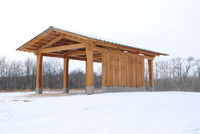
Although it may seem simple to calculate, snowfall cannot be well measured by simply placing a yardstick in the ground. In actuality, snow measurement is much more complicated and oftentimes the most accurate snow measurement devices are costly. However, two Notre Dame graduate students are working to improve the snow measurement process in an effective and affordable manner.
Biology major, Alexis Doyle, named Rhodes Scholar

Doyle, of Los Altos, California, and Watkins, a native of Blacksburg, Virginia, are two of 32 Rhodes Scholars selected from a pool of 882 candidates who had been endorsed by their colleges and universities. They are Notre Dame’s 18th and 19th Rhodes Scholars and will commence their studies at Oxford University in October.
Channeling Our Inner Darwin: Adventures in the Galapagos Islands

During fall break, I traveled with thirteen other Notre Dame undergraduate students to the Galápagos Islands as part of a new science course, Practicum in Field Environmental Biology. Under the direction of Biological Science Professors, Gary Lamberti and Malcolm Fraser, we explored the islands and investigated individual research projects, which focused on observation of unique species in the islands. Throughout the week, our tour guide, Luis, offered insight into the amazing characteristics of the islands and explained how each island’s environment is conducive to the success of unique species. I have never been in a place quite like it, where you have to compete with sea lions for a space to sit on the boardwalk, or where iguanas will walk right in front of you and completely disregard your presence. The Galapagos Islands are the perfect example of nature existing with no fear of humans, and the protection of them and respect for the environment there was unquestionable.
In memoriam: Rev. James J. McGrath, C.S.C., professor emeritus of biological sciences

McGrath was an assistant chair of the Department of Biological Sciences, a dorm rector and later chaplain of the Notre Dame Fire Department.
Identifying DNA and Developing Data
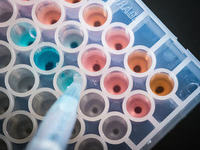
When it comes to battling disease and maintaining healthy environments, DNA sequencing can be imperative to success. At the University of Notre Dame, the Genomics and Bioinformatics Core Facility (GBCF) supports research in many areas that increasingly rely on DNA sequencing, including cancer biology, vector-borne diseases, the development of drug and antibiotic resistance, monitoring invasive species, and much more.
Notre Dame researchers to lead NSF Dimensions of Biodiversity study
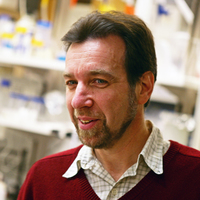
The study will focus on the apple maggot fly, Rhagoletis pomonella, and the parasitoid wasps that attack the fly.
Students share Galapagos Islands diversity with area children
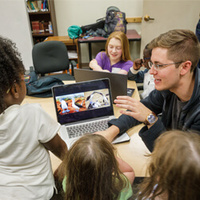
Days before their Fall Break trip to the Galapagos Islands as part of a course in the Department of Biological Sciences, 14 Notre Dame undergraduates introduced the Darwin-inspiring islands to youngsters at the Robinson Community Learning Center who will be “virtual explorers” with them through the adventure.
Shogren wins EPA graduate fellowship
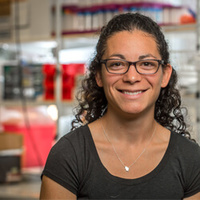
Biological sciences doctoral candidate, Arial Shogren, has been awarded the Science to Achieve Results (STAR) Graduate Fellowship from the U.S. Environmental Protection Agency (EPA). Shogren received the $132,000 grant for her project, “Modeling the Transport of Environmental DNA (eDNA)” in the EPA’s Emerging Environmental Approaches and Challenges Innovation program.
Biology NSF REU students present research findings
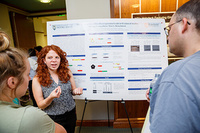
This summer, the University of Notre Dame welcomed 14 students to campus to participate in the NSF-funded Research Experience for Undergraduates (REU) program in the Department of Biological Sciences.
Dr. Hyde and team awarded $1.9 million from NIH as part of the effort to reverse blindness
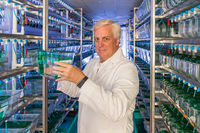
Dr. David Hyde and his team have been awarded over $1.9 million from the National Institute of Health (NIH) to lead one of six projects planned to identify biological …
Researchers to pursue novel Zika solution
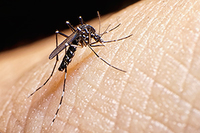
A team of researchers from the University of Notre Dame’s Eck Institute for Global Health (EIGH) has received a grant from the USAID to pursue a novel solution to the Zika outbreak. The team, led by Molly Duman Scheel, an associate professor of medical and molecular genetics at the Indiana University School of Medicine-South Bend (IUSM-SB), associate adjunct professor of biological sciences at Notre Dame and member of EIGH, is developing an insecticide to destroy Aedes aegypti larvae before the mosquitoes are able to hatch and transmit Zika.
Uncovering a new pathway to halting metastasis
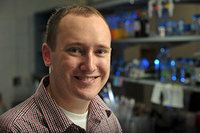
Metastasis, the process by which cancer cells leave the primary tumor and spread to other sites in the body, is responsible for more than 90 percent of cancer deaths. Thus, there is a significant need to improve the therapeutic options for patients who suffer from metastatic disease. New research from the laboratory of Zachary T. Schafer, associate professor in the Department of Biological Sciences, Coleman Foundation Collegiate Chair of Cancer Biology and researcher in the Harper Cancer Research Institute, could lead to these new therapies.
Reinterpreting the fossil record on jaws
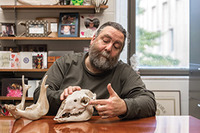
Scientists use the fossil record to make judgments on the physiology and behavior of species. But are those interpretations correct? New research from a team of researchers led by Matthew Ravosa, professor of biology and concurrent professor of both aerospace and mechanical engineering and anthropology, puts into question how we interpret the behavior of extinct organisms from their fossil remains, and the greater role of plasticity — or the adaptive fine-tuning of the link between anatomy and behavior — in determining evolution diversity.
Holding the Key to Affordable Biotherapeutics
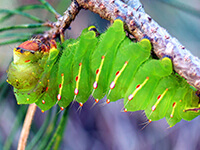
Malcolm Fraser Jr., the University of Notre Dame’s Rev. Julius A. Nieuwland, C.S.C., Professor of Biological Sciences, is conducting research that utilizes the silkworm caterpillar’s silk gland to conduct mammalian-like protein production with the end goal of producing cost-effective biotherapeutic products, or therapeutic materials created utilizing recombinant DNA technology, that can be used to treat life-threatening and chronic diseases.
How being sick impacts a person’s behavior
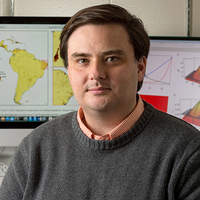
Alex Perkins, Ph.D., Eck Family Assistant Professor in the Departments of Biological Sciences and Applied and Computational Mathematics and Statistics, and a member of the Eck Institute for Global Health, recently published a study looking at behavior of patients with one of the most common symptoms of disease: fever. Surprisingly, the impact of this common disease symptom on the mobility and contact patterns of an infected person is rarely studied and “seldom accounted for in mathematical models of transmission dynamics.”
Forcing Evolution on the Great Salt Lake Ecosystem

New research completed at the University of Notre Dame’s Environmental Research Center (UNDERC) – West indicates that as sinking brine shrimp cysts remain while many floating cysts are removed, the brine shrimp population is shifting to contain more sinking cysts.
DoD grant funds pursuit of novel insecticides to fight Zika, other diseases

A collaboration among faculty in the Eck Institute for Global Health and the Warren Family Research Center for Drug Discovery and Development is investigating new ways to kill the mosquitoes that carry the Zika virus, dengue fever, and other dangerous diseases.
Entomologist Nicole L. Achee helps write gene drives report

University of Notre Dame medical entomologist Nicole L. Achee is a member of committee convened to summarize the scientific discoveries related to gene drives and considerations for their responsible use. The National Institutes of Health (NIH) and the Foundation for the National Institutes of Health asked the National Academies of Sciences, Engineering and Medicine to convene the committee.
Using Lake Michigan turtles to measure wetland pollution

Decades of unregulated industrial waste dumping in areas of the Great Lakes have created a host of environmental and wildlife problems. Now it appears that Lake Michigan painted and snapping turtles could be a useful source for measuring the resulting pollution.
Notre Dame Research to showcase Commercialization Opportunities at BIO 2016

The University of Notre Dame will attend the 2016 BIO International Convention, which is hosted by the Biotechnology Innovation Organization (BIO) from June 6 - 9, 2016 in San Francisco. Represented Notre Dame Research groups at the event include the Harper Cancer Research Institute (HCRI), the Center for Nano Science and Technology (NDnano), as well as Technology Transfer.
Notre Dame Biology student recognized for outstanding contributions to science
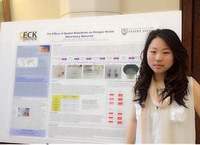
Graduating Biology major, Diane Choi, is being honored with multiple academic achievement awards as the Class of 2016 prepares for graduation. Choi is the recipient of three major undergraduate awards for her work while a science student at Notre Dame. The awards include the Outstanding Biology Student Leader Award from the Department of Biological Sciences recognizing “a senior Biology major who has made outstanding contributions, through leadership and service, to advance the interests of other students in the department;”
Understanding Behavior Key to Combating Malaria
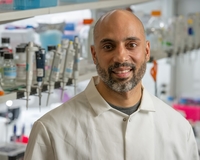
Today, April 25, is the annual World Malaria Day. This year’s theme – End Malaria for Good – seeks to build upon past successes in combatting this deadly disease, which killed over 435,000 people in 2015, and sustain this progress in order to truly “end malaria for good.” At the University of Notre Dame, Neil Lobo, a research associate professor of biological sciences and an Eck Institute for Global Health faculty member, is working to end malaria for good by focusing on the vectors that transmit the disease and how certain methods or interventions reduce malaria transmission.
Twenty-four graduate students win NSF GRFP awards
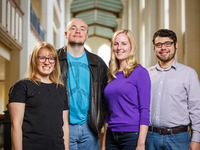
The National Science Foundation recently announced the winners of the 2016 Graduate Research Fellowship Program (GRFP), with 24 current Notre Dame students winning the prestigious award and another 17 earning honorable mention. Overall, there were 41 students recognized by the NSF. This doubles the number of Notre Dame awardees from 2015, and nearly doubles the previous Notre Dame record of 26, set last year, for total students recognized by the NSF. The NSF-GRFP recognizes and supports outstanding graduate students in NSF-supported science, technology, engineering, mathematics, and social science disciplines who are pursuing research-based degrees. The award provides a stipend, tuition support, and research funds for three years.
A tough childhood can lead to a shorter life for baboons
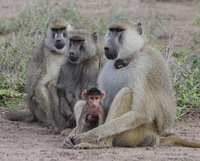
What is true for humans is also true for baboons: The tougher the childhood, the higher the risks of premature death later in life. Numerous studies have shown that childhood trauma can have far-reaching effects on adult health and survival; new research finds the same is true for wild baboons.
Jennifer Tank receives 2016 Ganey Award for community-based research
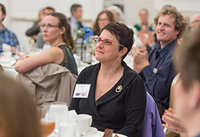
Jennifer Tank has received the 2016 Rodney F. Ganey, Ph.D., Community-Based Research Award for working together with Kosciusko County farmers and local conservation staff to reduce nutrient runoff in the Shatto Ditch watershed. The award is a $5,000 prize presented annually to a regular faculty member at the University of Notre Dame who has completed at least one research project that addresses a need within South Bend or the surrounding area.
With mosquito Y chromosome sequencing, researchers lay groundwork for advanced disease control

Human malaria, uniquely transmitted by a handful of anopheline mosquitoes, continues to attack nearly 200 million people and claims the lives of 600,000 each year. Africa bears the biggest burden due to its dominant vector, Anopheles gambiae. Ever since the groundbreaking Anopheles gambiae genome sequencing project was published in 2002, efforts have been underway to harness genomics for novel vector-based malaria control strategies. Nora J. Besansky, O’Hara Professor in the Department of Biological Sciences and member of the Eck Institute for Global Health at the University of Notre Dame, assembled a diverse and multinational team of scientists to crack the genetic code of the Y chromosome in malaria mosquitoes for the first time.
Indiana Watershed Initiative highlighted at White House Water Summit
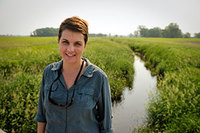
A new program aimed at improving water quality in the nation’s heartland by using watershed-scale conservation to reduce nutrient runoff from farms was highlighted Tuesday (March 22) at a White House Water Summit. The program is spearheaded through a collaboration between the University of Notre Dame Environmental Change Initiative and Indiana University.
Using DNA 'fingerprinting' to understand ancestry and immunity of trees
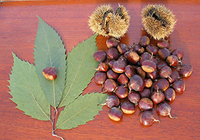
When Europeans came to the New World in the 16th century, they brought measles and smallpox with them. Without the immunity Europeans had cultivated over the years, the native people in America quickly fell ill. Millions died as a result. Today, trees in the New World are also dying from diseases that were introduced through global trade started by the Europeans. However, trees are much more vulnerable than humans.
Bringing legendary science faculty to Notre Dame
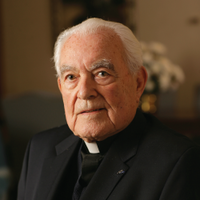
During the one year anniversary of the death of Fr. Hesburgh, the College of Science recalls and appreciates the impact that he had on science at Notre Dame. When former Notre Dame President Father John J. Cavanaugh challenged “Where are the Catholic Salks, Oppenheimers, and Einsteins?” in a widely-read essay in the late 1950s, Father Theodore Hesburgh was already in the process of providing an answer. In both direct action, from building facilities to recruiting top scholars, and cultural transformation, from welcoming women students to asserting academic freedom, Hesburgh laid the foundations for the College of Science’s accelerating research, discovery, and mission-driven entrepreneurship in the 21st century.